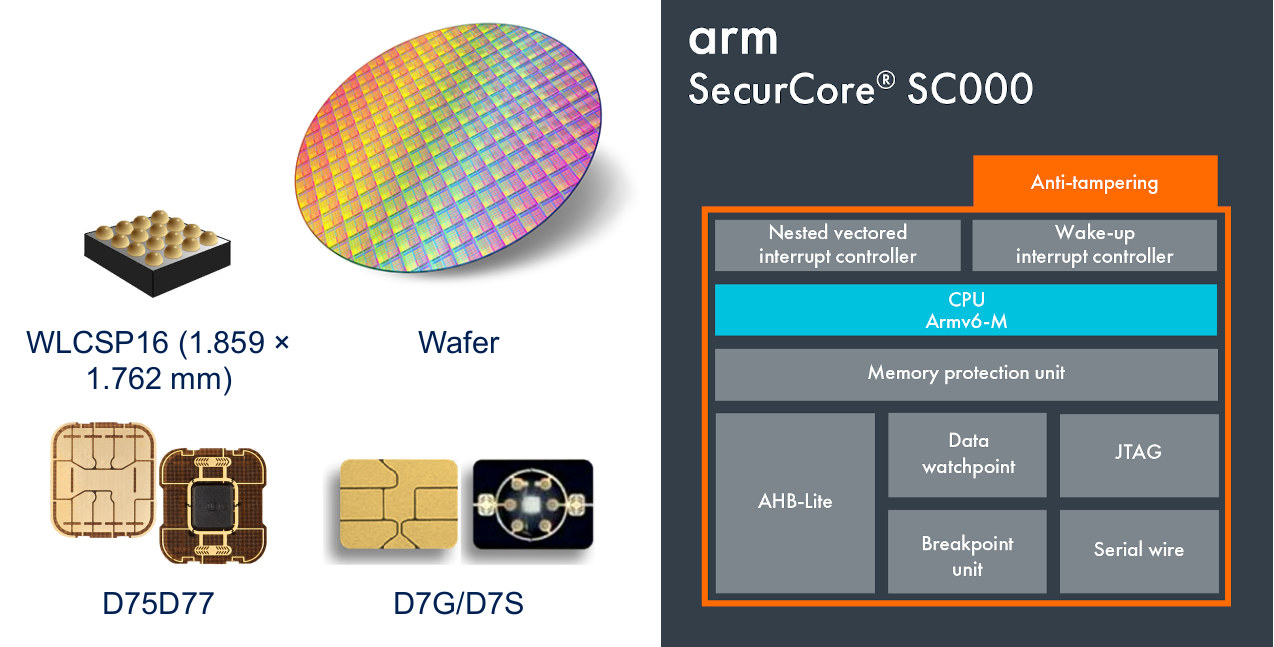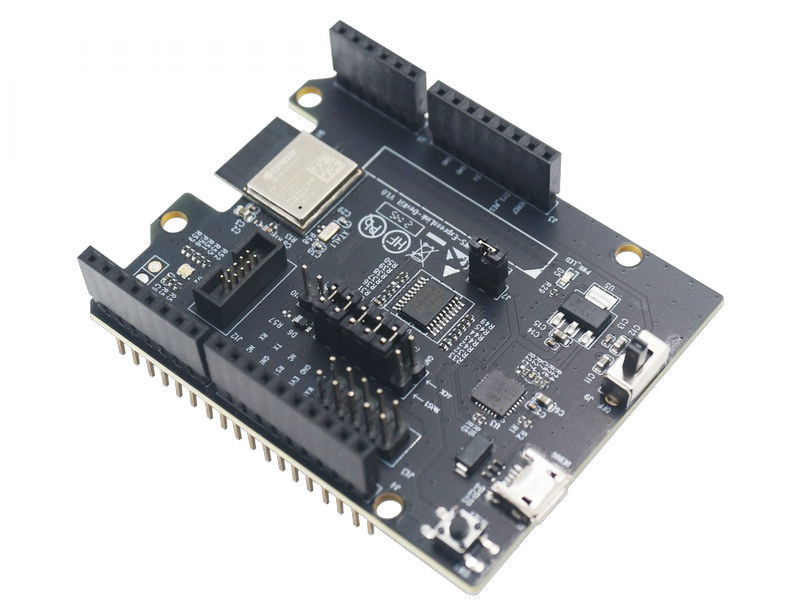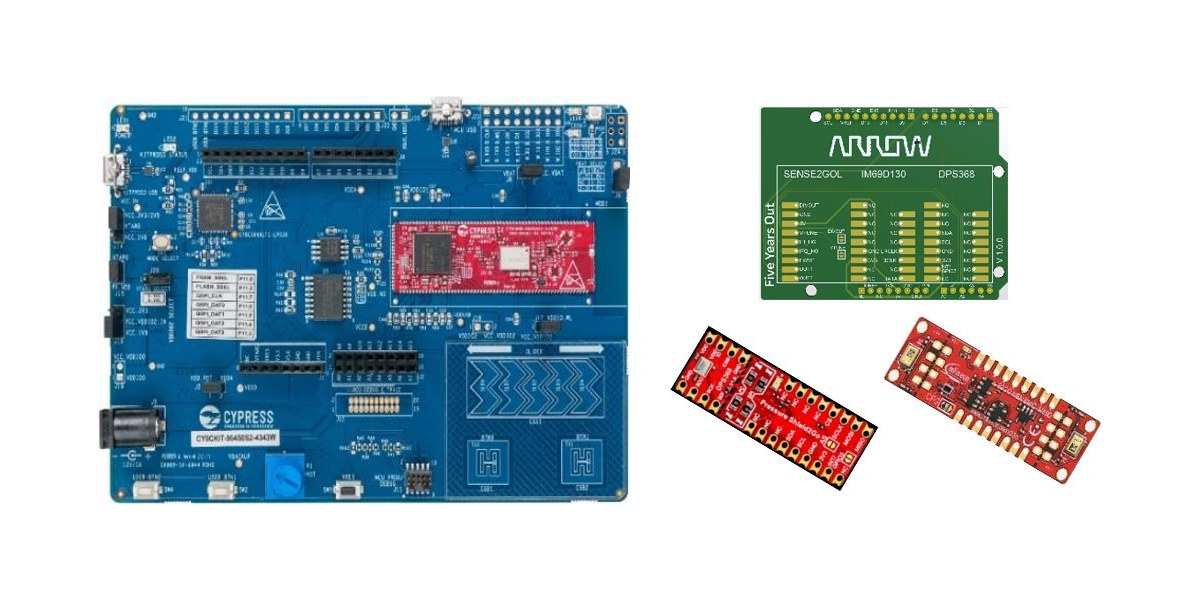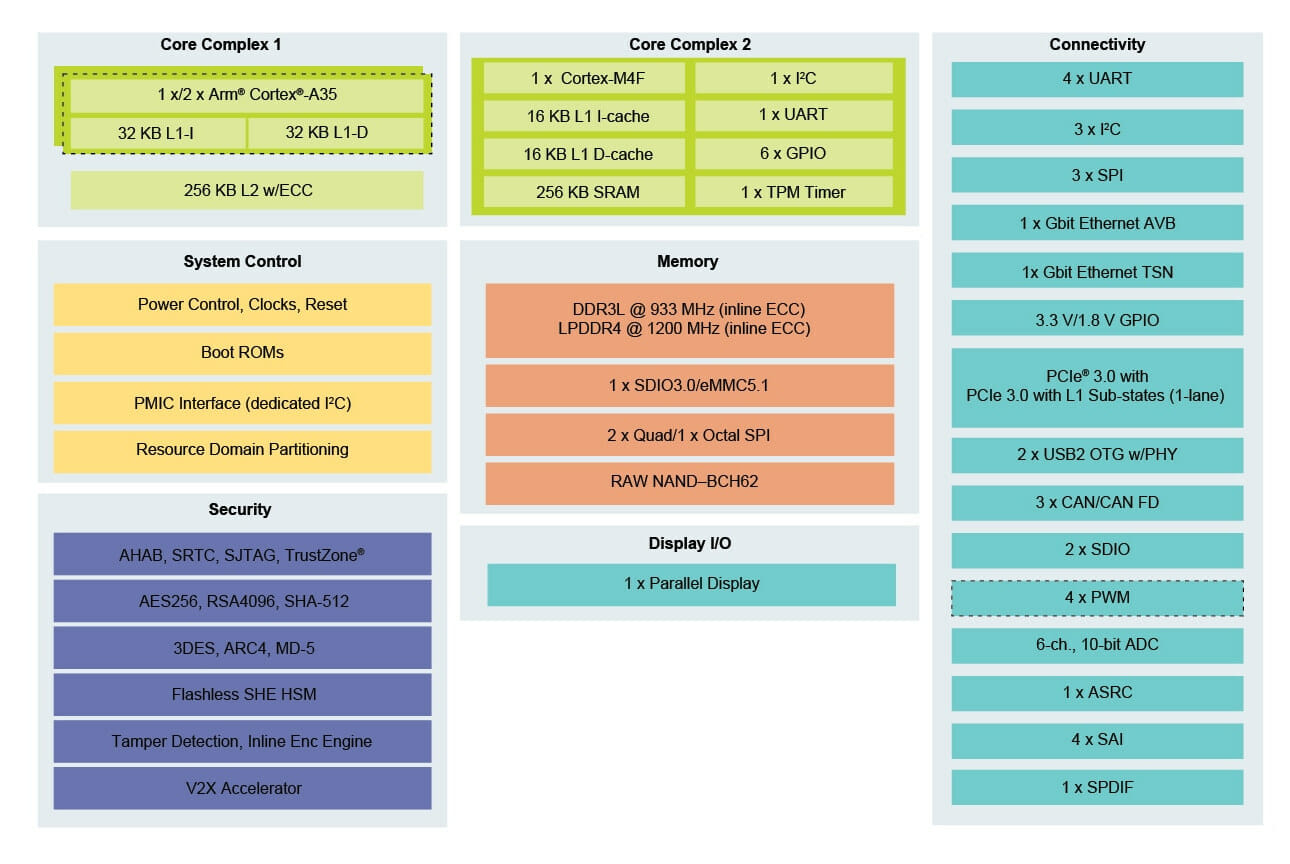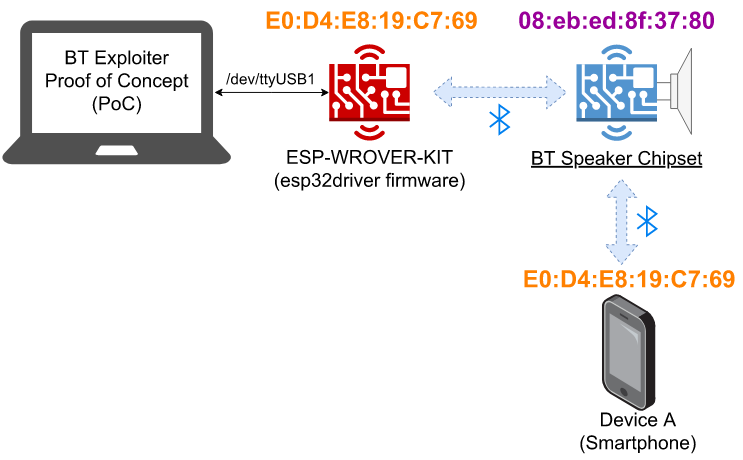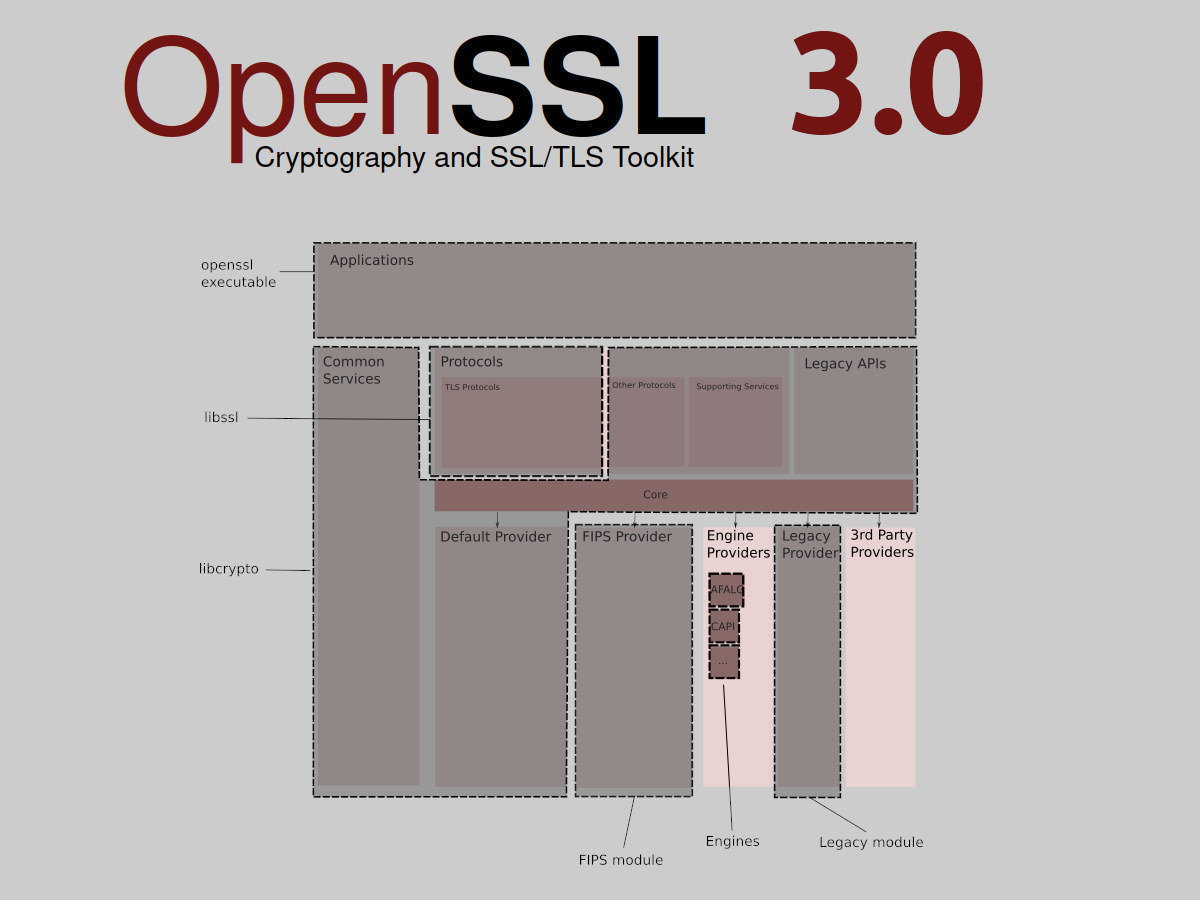Today, I’ve learned about an Arm core family I’d never heard about: the Arm SecurCore family for smartcard and embedded security applications. The Arm SecurCore SC000 (Cortex-M0 based) and Arm SecurCore SC300 (Cortex-M3 based) have been around for years, but they’ve just been brought to my attention with STMicro ST31N600 secure microcontroller announcement. Manufactured with STMicro’s 40nm eSTM technology, the ST31N600 is designed for contact and contactless payment cards, ID cards, and transport ticketing thanks to circuitry for energy harvesting, and support for EMV ISO 7816, ISO 14443, and ISO 18092 standards. STMicro also introduced ST31N500 and ST31N400 microcontrollers with less flash memory, but other the same specifications as ST31N600: MCU Core – Lockstep 32-bit Arm SecurCore SC000 up to 60 MHz Memory – 16 KB of user RAM Storage with 25-year retention, 500,000 erase/write cycle endurance ST31N600 – 608 KB ST31N500 – 512 KB ST31N400 – 416 KB RF […]
ESP32-C3 AWS IoT ExpressLink module & devkit aim to ease connection to AWS IoT services
Amazon and Espressif have launched another wireless module with the ESP32-C3 AWS IoT ExpressLink module together with a development kit supporting out-of-the-box AWS IoT connectivity, following their earlier collaboration with the launch of the ESP32-PICO-V3-ZERO Alexa Connect Kit Module last summer. Also called the “ESP32-C3-MINI-1-N4-A”, the ESP32-C3 AWS IoT ExpressLink module implements the AWS IoT ExpressLink specification and provides AWS IoT Core connectivity to a host MCU via AT commands over a UART interface. Pre-provisioned and pre-programmed with ease integration the module supports WiFi configuration, messaging, OTA, and device management. The compact (16.6 x 13.2mm) ESP32-C3 module is currently offered as part of the ESP32-C3-AWS-ExpressLink-DevKit development board following the Arduino Zero board form factor allowing it to be plugged into the Arduino board, or easily connect to other host systems such as the Raspberry Pi. The goal is to simplify the deployment of IoT solutions removing the need for […]
AMD Ryzen V1000/R1000 Mini-ITX board is made for game arcades, slot machines
Axiomtek GMB140 is a compact Mini-ITX motherboard powered by AMD Ryzen Embedded V1000/R1000 processor and mostly designed for gaming applications, as well as medical imaging, interactive kiosks, control rooms, and video surveillance. But when we’re not talking about your kids playing games at home here, but instead slot machines, arcade systems, and electronic gaming machines (EGM) powered by the GMB140 board with a PCIe interface for gaming I/O modules, and optional support for a 9-bit serial port for the SAS 6.02 protocol. Axiomtek GMB140 mini-ITX board specifications: SoC – AMD Ryzen Embedded V1000/R1000 quad-/dual-core “Zen” processor with Radeon Vega graphics either: AMD Ryzen Embedded V1807 w/ VEGA 11 graphics AMD Ryzen Embedded V1756 w/ VEGA 8 graphics AMD Ryzen Embedded V1605 w/ VEGA 8 graphics AMD Ryzen Embedded V1202 w/ VEGA 3 graphics AMD Ryzen Embedded R1606 w/ VEGA 3 graphics AMD Ryzen Embedded R1505 w/ VEGA 3 graphics System […]
Arrow launches PSA Certified PSoC 64 IoT Security Workshop Development Kit
In 2019, we wrote that Cypress PSoC 64 microcontrollers for Secure IoT applications was one of the first microcontrollers compliant with Arm’s Platform Security Architecture (PSA) designed to secure the Internet of Things. Arrow has now launched the PSoC 64 IoT Security Workshop Development Kit, its first PSA Certified platform, which happens to be based on Cypress PSoC 64, and developed in collaboration with Infineon who purchased Cypress Semiconductor last year. Designed to help developers quickly create PSA Certified solutions, the development kit includes the Infineon PSoC 64 Secure AWS IoT Pioneer Kit, Arrow PSoC 6 IoT Sensor Shield, Shield2Go kits, and AWS cloud enablement with certified functional APIs and integrated dashboard for monitoring and visualization. There are three levels for PSA certification: level 1 for device manufacturers involves the evaluation of an IoT device to assess whether it adheres to security best practice, level 2 with a laboratory evaluation […]
Hardware security flaw impacts Intel Apollo Lake & Gemini Lake processors
A few years go the Spectre and Meltdown hardware security vulnerabilities impacted a wide range of processors from Intel, AMD, Arm, and others. But a newly discovered hardware security flaw impacts specifically the Atom, Celeron, and Pentium from the Apollo Lake, Gemini Lake, Denverton … low-power processors we often feature on CNX Software. Researchers have managed to activate test or debug logic at runtime for some low-power Intel processors, which they could use to escalate privilege, retrieve the “fuse encryption key” aka “chipset key fuse” unique to each processor, and access encrypted data. Most people do not need to panic though, as the hack would require physical access to the machine, and Intel says it is releasing firmware updates to mitigate the vulnerability. High-value targets should care though as the hack only takes 10 minutes, and if a laptop is stolen or lost, a skilled attacker should be able to […]
GPU-less NXP i.MX 8XLite Cortex-A35/M4 SoC is aimed at IIoT & V2X applications
NXP i.MX 8XLite SoC is a cost-optimized version of NXP i.MX 8X automotive processor with up to two Cortex-A35 cores, one Cortex-M4F real-time core, and in a GPU-less configuration since it lacks the Vivante GPU found in i.MX 8X family. The headless processor also comes with dedicated Hardware Security Modules (HSM) to enable telematics solutions, vehicle-to-everything (V2X) applications including vehicle-to-vehicle (V2V) and vehicle-to-infrastructure (V2I) solutions, road infrastructure connectivity, as well as IIoT applications such as industrial equipment and building automation. NXP i.MX 8XLite key features and specifications: Processor complex 1x or 2x Arm Cortex-A35 cores @ up to 1.2 GHz with 256KB L2 cache with ECC 1x Arm Cortex-M4F core for real-time processing Memory I/F – 16-bit DDR3L-1866 and LPDDR4-2400 with ECC protection Storage I/F 1x FlexSPI for fast boot from SPI NOR flash 2x SD 3.0 card interfaces 1x eMMC5.1/SD3.0 NAND (62-bit ECC support) Networking – 1x Gigabit Ethernet […]
BrakTooth vulnerabilities impact closed-source Bluetooth stacks used in chips from Espressif, Intel, Qualcomm…
BrakTooth is a family of new security vulnerabilities in commercial, closed-source Bluetooth Classic stacks that range from denial of service (DoS) via firmware crashes and deadlocks to arbitrary code execution (ACE) in certain IoT devices. A team from Singapore has discovered 16 new security vulnerabilities after evaluating 13 Bluetooth devices from 11 vendors, but after browsing through the list of certified Bluetooth devices with impacted processors, they estimate it could impact 1400 devices. We can see the list of BrakTooth-impacted SoCs include some familiar names like Intel AX200 (found in many laptops and computers through M.2 cards), Espressif Systems ESP32, Texas Instruments CC2564C, Qualcomm CSR8811/CSR8510, Bluetrum AB32VG1 board (based on AB5301A SoC) which I’ve just reviewed, and more… The good news is that most vendors have either already submitted a patch or working on it. Espressif, Infineon (previously Cypress), and Bluetrum already have released patchsets for their firmware. It’s really […]
OpenSSL 3.0 released with pending FIPS 140-2 validation
OpenSSL 3.0 has just been released after three years of development, and over 7,500 commits and contributions from over 350 different authors with a new FIPS module that awaits FIPS 140-2 validation by the end of the year, improved documentation, and a change to an Apache License 2.0. OpenSSL’s reputation took a serious hit in 2014 with the Hearbleed bug that allowed attackers to steal the information protected by the SSL/TLS encryption used for most secure Internet communication. The bug was introduced in 2012, and it took almost two years to be fixed. Yet, despite the fix, many projects switched to other SSL libraries like LibreSSL, WolfSSL, or mbedTLS. But it’s good the project is still very much active, and OpenSSL 3.0 succeeds OpenSSL 1.1.1 released in September 2018. Who knows what OpenSSL 2.0… One of the main changes is support for the Provider concept, and OpenSSL 3.0 comes with […]


